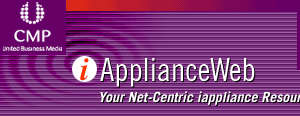



 |
 |
|
|
 |

|
||
|
|
|
|
|||

|
E Ink and Lucent Technologies Deliver Electronic PaperBy E Ink and Lucent entered into a joint development agreement in October 1999 to co-develop a flexible, plastic electronic display made entirely with a process similar to ink-on-paper printing. One year later the two companies jointly demonstrated working prototypes built on thin sheets of plastic, an important step in the march towards electronic paper and next-generation displays. The prototypes consist of a 25-square-inch display area made up of several hundred pixels. The displays were constructed using two developments: E Ink's electronic ink and Lucent's active-matrix drive circuits printed on plastic, which were developed by Bell Labs, Lucent's research and development unit. The transistors in these circuits are made of plastic materials and are fabricated with a low-cost printing process that uses high-resolution rubber stamps. Their switching properties are similar to typical thin film transistors made with silicon and conventional fabrication methods, but they are mechanically flexible, rugged, and lightweight. The electronic ink enables the display's paper-like qualities, giving it extraordinary brightness and contrast under a wide range of lighting conditions, easy viewing from all angles, low power consumption, and plastic film construction. "Our collaboration with Lucent was a significant milestone toward creating RadioPaper, E Ink's ultimate vision for a dynamic high-resolution electronic display that combines a paper-like reading experience with the ability to access information anytime, anywhere," said Jim Iuliano, president and CEO of E Ink Corporation. "In the coming years we expect our electronic ink will have broad usage in many applications, from point-of-purchase signs in retail stores, to replacement displays for pagers, cellular phones, and PDAs to thin, portable electronic books and newspapers." "Electronic paper was the first demonstration of a realistic application for plastic transistors in a flexible device. Over time, we see plastic transistors finding use in a variety of low-cost electronic information appliances," said Tom Uhlman, president of Lucent's New Ventures Group. "The display represents a significant scientific advance over previous work in plastic electronics and paper-like displays, which, until now, has been limited solely to simple demonstrator systems capable of working only in specialized laboratory conditions." Links: |
|
||||||||

Terms and Conditions Privacy Statement |
||||||||||